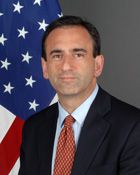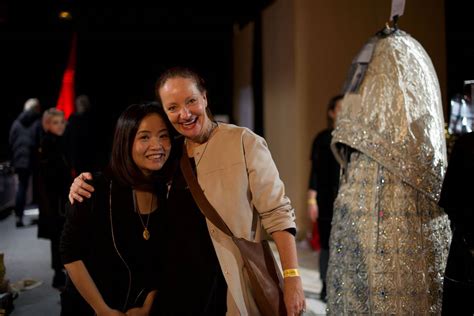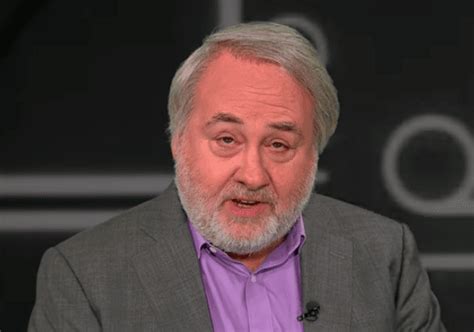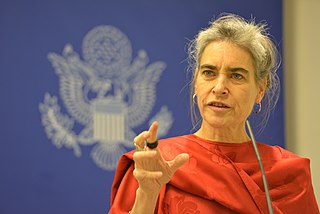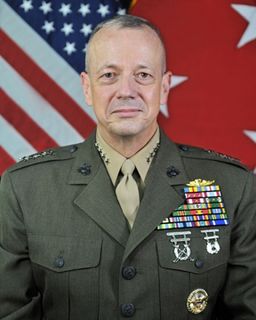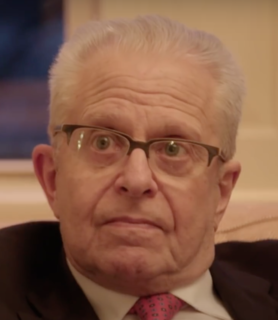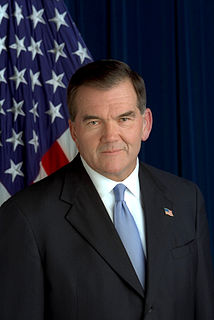Top 1154 Afghanistan Quotes & Sayings - Page 19
Explore popular Afghanistan quotes.
Last updated on November 25, 2024.
The 2.4 million bright, brave, incredibly fit and remarkably talented young Americans who have served in our armed forces since we were attacked on 9-11-01 are all volunteers. As General Petraeus put it during a conversation we had in Afghanistan, 'They all came or stayed, knowing they were going to war.' For more than a decade, these patriots and their loved ones have made extraordinary sacrifices for this country. They embody the classical definition of heroes: those who put themselves at risk for the benefit of others.
Our [Afghanistan] main problem is education. Over 90 percent of our population is uneducated. So what can you expect? The terrorists come from Syria, Iraq, Pakistan, saying the Quran says this, Quran says that, and the Afghans believe that because they speak Arabic, they think they know the language of Quran, and they know Islam better than us, let's follow them. So they simply follow them.
Beside the two wars he inherited in Iraq and Afghanistan, and promised to end, a financial crisis at home had pushed the United States to the brink of another Great Depression. When we spoke with the new president in March of 2009, the economy was losing 800,000 jobs a month, the government was throwing hundreds of billions of dollars at failing banks, and the auto industry was on the verge of collapse. Politically pummeled from all sides, Obama did his best to keep a sense of humor.
Karzai is Afghanistan's first democratically elected president. He brought the international community into partnership on an unprecedented level, and he championed a new constitution that is liberal, democratic and still very Afghan. All of that does reflect a vision. But he's presided over a country that is still in conflict, and he hasn't taken some of the difficult decisions his own government wanted him to take. On corruption, he hasn't been as decisive as he should've been. There are legitimate questions about him.
The question about the Salafi is an important question as I say in Arab Awakening, and have often repeated since. I am really underlining the importance of this, because we really don't have very good memories. Remember - the Taliban in Afghanistan were not at all politicised in the beginning. They were just on about education. And then they were pushed by the Saudi and the Americans to be against the Russian colonisation, and as a result they came to be politicised.
Some say that by fighting the terrorists abroad since September the 11th, we only stir up a hornets' nest. But the terrorists who struck that day were stirred up already. If America were not fighting terrorists in Iraq and Afghanistan and elsewhere, what would these thousands of killers do - suddenly begin leading productive lives of service and charity? ... We are dealing here with killers who have made the death of Americans the calling of their lives.
When was the last time the United States won a war? You know, it lost in Vietnam. It's lost in Afghanistan. It's lost in Iraq. And it will not be able to contain the situation. It is hemorrhaging. It is now - you know, of course you can continue with drone attacks, and you can continue these targeted killings, but on the ground, a situation is being created which no army - not America, not anybody - can control. And it's just, you know, a combination of such foolishness, such a lack of understanding of culture in the world.
Look what happened with regard to our invasion into Afghanistan, how we apparently intentionally let bin Laden get away. That was done by the previous administration because they knew very well that if they would capture al Qaeda, there would be no justification for an invasion in Iraq. There’s no question that the leader of the military operations of the U.S. called back our military, called them back from going after the head of al Qaeda.
The Islamists had control over territory that was about half the size of the Federal Republic of Germany. For years, we have been putting the lives of our troops on the line, we have taken huge losses and the Europeans cut the budget? If money is more important than the lives of our children, what else is this than the usual arrogance and superficiality? And where is all this terror coming from? It is a result of mistakes the West committed in Pakistan and Afghanistan in the 1980s, when they armed the Islamic rebels against the Soviet troops.
After the revolution of 1979, Iran embarked on a policy of sectarianism. Iran began a policy of expanding its revolution, of interfering with the affairs of its neighbors, a policy of assassinating diplomats and of attacking embassies. Iran is responsible for a number of terrorist attacks in the Kingdom, it is responsible for smuggling explosives and drugs into Saudi Arabia. And Iran is responsible for setting up sectarian militias in Iraq, Pakistan, Afghanistan and Yemen, whose objective is to destabilize those countries.
I've not been to Afghanistan or - but what people are clearly pointing to is that it becomes more difficult to have it. You could do it. I think weather is a factor. The most important factor though is credibility and legitimacy. What I wanted earlier to say is what I think Senator [John] Kerry is pointing to, which is important, is the strategic review on whether to send more troops is only one piece of the puzzle, important piece.
You go into Afghanistan, you got guys who slap women around for five years because they didn't wear a veil. You know, guys like that ain't got no manhood left anyway. So it's a hell of a lot of fun to shoot them. Actually, it’s a lot of fun to fight. You know, it’s a hell of a hoot. It’s fun to shoot some people. I’ll be right up front with you — I like brawling.
Our tragedy today is not just that millions of people who called themselves communist or socialist were physically liquidated in Vietnam, Indonesia, Iran, Iraq, Afghanistan, not just that China and Russia, after all that revolution, have become capitalist economies, not just that the working class has been ruined in the United States and its unions dismantled, not just that Greece has been brought to its knees, or that Cuba will soon be assimilated into the free market - it is also that the language of the Left, the discourse of the Left, has been marginalised and is sought to be eradicated.
The military sensed weakness, exploited it and played Barack Obama. Obama's foreign policy has been consistently hawkish despite this reluctant warrior schtick that he pulls. But at the end of the day a reluctant warrior is still a warrior. Look at the drone strikes, the tripling of the war in Afghanistan, and now Libya. I'm convinced that had Obama been in the Senate in 2003 he would have voted for the Iraq war. He's clearly easily convinced by his advisers and the Pentagon.
An idea is growing in foreign policy circles in Washington ... that there is no turning back. We are stuck in Iraq and Afghanistan for 25 to 40 years, we are embedded in our prideful unilateralism, and nothing can return us to more traditional American values and principles of action. The hubristic creators of this "inevitability" planned it this way. ... Their failures in Iraq have not stopped the fanatic, power-hungry neoconservatives. ... The hard-liners who dominate this administration ... have led us to eternal conflict with Muslims.
We got the Iran sanctions done. We got an agreement by Russia to allow us to use Afghanistan to transit supplies for our forces. We got a Security Council resolution on Libya. We got Russia into the WTO to bring in to it a rules-based trading system. All of those things were in our interest. The point is not whether we should work with Russia. The point is whether we should sacrifice other important interests to do so.
If I look at the really important questions in [Middle East] region, I see Iran, where there is a strong desire for a freer society and where people are repressed by a small group of ayatollahs. I see Syria, where we can see a similar desire of the people to be free. These two countries fund Hezbollah and other terrorist organizations and are hurting our efforts in Afghanistan and have been extremely harmful in Iraq. Then I also see large, important countries such as Egypt and Saudi Arabia.
It might sound crazy, but filming in a conflict zone, in Afghanistan, and being a female filmmaker was the easy part. I found people open and understanding of the importance and beauty of filmic storytelling. I never had to explain why Jake Bryant, my Director of Photography, and I were climbing up a ladder to get a high shot, or running ahead to get an arrival shot, or filming weeks after weeks, months after months, collecting so much material. The process was respected and honored.
So it is fair to ask, why not address the threat of climate change when it is still possible? Asad Rehman, of the international environmental group Friends of the Earth, who was in New York for the climate march, told me, “If we can find the trillions [of dollars] we’re finding for conflict whether there’s been the invasion in Iraq or Afghanistan or now the conflict in Syria, then we can find the kind of money that’s required for the transformation that will deliver clean, renewable energy.”
In 2001, we were told that the war in Afghanistan was a feminist mission. The marines were liberating Afghan women from the Taliban. Can you really bomb feminism into a country? And now, after 25 years of brutal war - 10 years against the Soviet occupation, 15 years of US occupation - the Taliban is riding back to Kabul and will soon be back to doing business with the United States.
Take the US. Women were not even able to vote until 90 ago, at about the same time they gained the right in Afghanistan. Rights of former slaves were very limited until the 1960s, and in some ways still are. In these and other domains there has been progress in democracy, though still seriously flawed. In other dimensions - the control of concentrated wealth over the political process, for example, things have gotten much worse in recent years. And there is much more, in both directions.
I'll tell you what they're all going to face, whichever one of them becomes president on January 21st of 2009. They will face a military force - a United States military force that cannot sustain - continually sustain 140,000 people deployed in Iraq and the 20-odd or 25,000 people we have deployed in Afghanistan and our other deployments.
Throughout the last century there were multiple attempts at giving Afghan women more autonomy, to change marriage laws, to abolish the practice of bride price and child marriage, and to enforce women to be involved in school. Every time, the reaction from the traditionalists was one of contempt and scorn and at times outright rebellion. I think the emancipation of women in Afghanistan has to come from inside, through Afghans themselves, gradually, over time.
The Soviets held to the tradition of colonialism. They raped the country and killed many people. But they also built dams, electrical power plants, streets, and technical schools. They were communists and had the same vision for Afghanistan that Stalin and Lenin had for the Soviet Union: Progress is communism plus electrification. And today? Today Kabul gets its electrical power from Uzbekistan, Herat from Iran and Jalalabad from Pakistan.
We believe that introducing surface-to-air missiles in Syria is going to change the balance of power on the ground. It will allow the moderate opposition to be able to neutralize the helicopters and aircraft that are dropping chemicals and have been carpet-bombing them, just like surface-to-air missiles in Afghanistan were able to change the balance of power there.
I went out to cover the wars in Iraq and Afghanistan fundamentally [in Buzzing at the Sill] because I was interested in war as a notion and in experiencing it. I was interested in history and how societies form. I was interested in the recent history of what had provoked these wars. So when I finally got out there, I was really seeing the wars through the American perspective, much more than through being embedded with American soldiers and Marines.
The New York Times will tell you what is going on in Afghanistan or the Horn of Africa. But it is no exaggeration that The New York Times has more people in India than they have in Brooklyn. Brooklyn is a borough of two million people. They're not a Bloomingdale's people, not trendy, sophisticated, the quiche and Volvo set. The New York Times does not serve those people.
Those organisations, al-Qaeda being the first one, have all settled in areas full of mining and oil resources or in geostrategic zones. They settled in Afghanistan which underground is filled with oil and lithium. North Mali is filled with mining resources (uranium). It is essential to question the impact and role of some international players that create or let those organisations settle there.
This is total war. We are fighting a variety of enemies. There are lots of them out there. All this talk about first we are going to do Afghanistan, then we will do Iraq... this is entirely the wrong way to go about it. If we just let our vision of the world go forth, and we embrace it entirely and we dont try to piece together clever diplomacy, but just wage a total war... our children will sing great songs about us years from now.
Let no one doubt, we will defend America's security and the cause of freedom around the world. But we want a president who tells us what America is fighting for, not just what we are fighting against. We want a president who will defend human rights - not just where it is convenient - but wherever freedom is at risk - from Chile to Afghanistan, from Poland to South Africa
It's hard for comic actors used to pulling faces just to be on screen, but Tina Fey does a good job. I liked watching her. The part, though, isn't filled in. When Baker announces that she's gotten too used to the madness of Afghanistan, that she's worried she's thinking of it as normal, the sentiment comes out of nowhere. The dramatic arc in "Whiskey Tango Foxtrot" is nonexistent. The movie evaporates in the mind like water in the Afghan desert.
Change can only come from local citizens and politicians - it cannot be imposed by well-meaning foreigners - not least because a society like Afghanistan or Iraq is suspicious of outsiders and often resistant to change. I am not going to get drawn into the ethics of intervening in other countries. My concern is the practical question. Can you actually achieve change in this way? My guess is we can stop wars sometimes as in the Balkans and topple regimes - but that the other stuff - such as corruption is not within our power to effect and alter.
Some dozens of years ago, there was a debate conducted between people insisting that "this loaf of bread must be redistributed," and the others who said "instead of worrying about redistributing it, cutting differently, let's make it bigger." A third possibility was not imagined: that the loaf may be shrinking. But it is now a genuine possibility. It is even acting upon already, like in the case of the American invasion of Afghanistan and of Iraq in order to secure the supply of petrol for the Americans addicted to gas-guzzling cars.
The war in Afghanistan was fought for feminist reasons, and the Marines were really on this feminist mission. But today, all the women in all these countries have been driven back into medieval situations. Women who were liberated, women who were doctors and lawyers and poets and writers and - you know, pushed back into this Shia set against Sunnis. The U.S. is supporting al-Qaeda militias all over this region and pretending that it's fighting Islam. So we are in a situation that is psychopathic.
Ronald Reagan was an actor. Not at all a factor, Just an employee of the country's real masters. Just like the Bushes, Clinton and Obama, Just another talkin' head tellin' lies on teleprompters. If you don't believe the theory, then argue with this logic: Why did Reagan and Obama both go after Gaddafi? We invaded sovereign soil, goin' after oil Takin' countries as a hobby paid for by the oil lobby, Same as Iraq and Afghanistan. And Ahmadinejad sayin' they comin' for Iran.
In most of the world, poetry has such a different reputation than it does in Western culture. Poetry is a popular genre in Afghanistan. If you turned on the radio, there would be a poetry program that would be as popular as The Real Housewives. People aren't listening to poetry as if they're taking their vitamins. Instead, it's a popular vessel you can fill with anything. You could fill it with sass. You could fill it with rage. You could fill it with political statements.
For all the criticism about warlords, it is now likely that Afghanistan will never again be turned over to al Qaeda to train thousands to conduct the type of murder we saw on September 11. For all real problems with ambushes and sabotage, there will be no more gassings, mass murdering, invading neighbors, sending guided missiles across borders or no-fly zones in Iraq, but rather the hard work of consensual government - a difficult process easily caricatured, but when completed universally admired.
we ought to realize by now (see Korea, see Vietnam, see Afghanistan, see Iraq, see Iran) that deploying the US military, or dealing billions of dollars a year of arms to our ally of the moment that can serve as a regional rival to our enemy of the moment, is not always the best way to make threats go away. Our military and weapons prowess is a fantastic and perfectly weighted hammer, but that doesn't make every international problem a nail.
For Americans, Poland has been a symbol of hope since the beginning of our nation. Polish heroes and American patriots fought side by side in our War of Independence and in many wars that followed. Our soldiers still serve together today in Afghanistan and Iraq, combatting the enemies of all civilization.For America's part, we have never given up on freedom and independence as the right and destiny of the Polish people, and we never, ever will.
David Petraeus, the best known American general of his generation. After commanding the American war effort in both Iraq and Afghanistan, he was serving as CIA director when he stepped down suddenly following revelations that he`d had an extramarital affair. That same investigation that turned up evidence of the affair also eventually turned up evidence that General.
Petraeus had passed classified information to his mistress.
According to the official version of history, CIA aid to the Mujahideen began during 1980, that is to say, after the Soviet army invaded Afghanistan, 24 Dec 1979. But the reality, secretly guarded until now, is completely otherwise. Indeed, it was July 3, 1979 that President Carter signed the first directive for secret aid to the opponents of the pro-Soviet regime in Kabul. And that very day, I wrote a note to the president in which I explained to him that in my opinion this aid was going to induce a Soviet military intervention.
I don't know anyone who is more admired and respected in the international community than President Karzai, for his strength, for his wisdom and for his courage to lead this country first in the defeat of the Taliban and now in rebuilding a democratic and unified Afghanistan. And I can tell you I am with foreign ministers and with heads of state all over the world. I sit in the councils of NATO. I sit with the EU. I sit with people all over the world and there is great admiration for your president and also for what the Afghan people are doing here.
?I know you're still young but I want you to understand and learn this now. Marriage can wait, education cannot. You're a very very bright girl. Truly you are. You can be anything you want Laila. I know this about you. And I also know that when this war is over Afghanistan is going to need you as much as its men maybe even more. Because a society has no chance of success if its women are uneducated Laila. No chance.
Since the 1950s (until the early 1990s), girls in Kabul and other cities attended schools. Half of university students were women, and women made up 40 percent of Afghanistan’s doctors, 70 percent of its teachers and 30 percent of its civil servants. A small number of women even held important political posts as members of Parliament and judges. Most women did not wear the burqa.
It was interesting watching the Afghanistan war review deliberations, this three-month process where Barack Obama did the most thorough foreign policy review ever by a modern American president. Compare that to Libya. For a month he said we weren't going to do anything, then suddenly changed his mind and did it on the fly. My view is that it's not how long or quick you take to make a decision, it's whether you make the right one.
In countries like Afghanistan, the corruption is in your face. In Nigeria, I heard of judges making sex the bargaining chip rather than money. Now let's put that in the context of an honor-based society. Imagine that you're the brother of a woman who got raped by a judge to have her case heard in court. What do you want to do? You want to kill the judge. So here is an insurgent movement that hands you a gun. You have rage, and they give you an outlet for your rage.
I did an embed in Afghanistan on the Pakistan border in 2008. One of the things you realize when you're talking to low-ranking enlisted men is that no one listens to them. So when I showed up they loved having someone to talk to. That's a real privilege for me. The guys on the ground are the guys I care about. I've had the most satisfaction telling their stories. There is trust and there is stuff that you learn to hold back, especially when you're dealing with younger guys or lower ranking officers. That's different from the top brass who are basically just politicians anyway.
And across Afghanistan, every single day, Afghan soldiers, Afghan police and ISAF troops are serving shoulder-to-shoulder in some very difficult situations. And our engagement with them, our shoulder-to-shoulder relationship with them, our conduct of operations with them every single day defines the real relationship.
Never mind that to me, the face of Afghanistan is that of a boy with a thin-boned frame, a shaved head, and low-set ears, a boy with a Chinese doll face perpetually lit by a harelipped smile. Never mind any of those things. Because history isn't easy to overcome. Neither is religion. In the end, I was a Pashtun and he was a Hazara, I was Sunni and he was Shi'a, and nothing was ever going to change that. Nothing.
What everyone underestimated was the acute unpopularity of the Taliban, even in the Pashtun areas. People like myself were saying the Taliban would be driven out very swiftly from the north of Afghanistan, but given that their main support base was in the Pashtun belt, there would be greater resistance there. That didn't happen. The Taliban had become deeply unpopular and were actually discarded by the Pashtun population almost as quickly as they were in the north. I don't see the Taliban coming back in any way.
One of the thing about being President - that can't be taught, you have to experience, is - there is the sheer weight of decision making. And when I make a decision to send 17,000 young Americans to Afghanistan - you can understand that intellectually. But understanding what that means for those families, for those young people - when you end up sitting at your desk, signing - a condolence letter to one of the family members of a fallen hero - you're reminded each and every day, at every moment, that - the decisions you make count.
Wars always evolve over time, don't they? Iraq/Afghanistan is different than Vietnam, and Vietnam was different than Korea, and Korea was different than World War One, and so on. Some things remain the same, of course - one side fighting another over ideology or a patch of ground - but there are some aspects of combat life which differ radically than their predecessors.
One of their major initiatives was getting all officers on Facebook. So the question is, why are these people who are there to train the Afghans being pressured to be on Facebook? Again, it sounds benign until you realize that the military's concern isn't the Afghans, it's convincing the American people that we should be in Afghanistan.Soldiers can put up pictures and say "See how happy the Afghans are because of our presence here." It's a way to directly influence the American people using propaganda.
I'm no military expert, and these figures might not be exactly right,' I said. 'But as best I can tell, we've launched 114 Tomahawk cruise missiles into Afghanistan so far. Now take the cost of one of those missiles, tipped with a Raytheon guidance system, which I think is about $840,000. For that much money, you could build dozens of schools that could provide tens of thousands of students with a balanced, non extremist education over the course of a generation. Which do you think will make us more secure?
The most dangerous thing I've ever encountered was a run-in with Boko Haram around 2007 in a small town in Nigeria. I got caught along with the photographer I was working with, the same one I worked with on the Afghanistan book, Seamus Murphy. We were caught in an attack by a mob after Friday prayers. And the level of violence was so extreme. It was more violent than any other mob violence I have ever seen.
It bothers me that the executive branch is taking the amazing position that just on the president's say-so, any American citizen can be picked up, not just in Afghanistan, but at O'Hare Airport or on the streets of any city in this country, and locked up without access to a lawyer or court just because the government says he's connected somehow with the Taliban or Al Qaeda. That's not the American way. It's not the constitutional way.
I might have arguments with the size of Reagan's military buildup, but given the Soviet invasion of Afghanistan, staying ahead of the Soviets militarily seemed a sensible thing to do. Pride in our country, respect for our armed services, a healthy appreciation for the dangers beyond our borders, an insistence that there was no easy equivalence between East and West--in all this I had no quarrel with Reagan. And when the Berlin Wall came tumbling down, I had to give the old man his due, even if I never gave him my vote.
Sometimes people say to me, 'Well, what was the difference between Kosovo, which was a successful intervention, and Iraq and Afghanistan that have been so difficult?' And the answer is perfectly simple. In Kosovo, you have, after the removal of the loss of its regime, you had a process of political and economic reconstruction that took its part without the intervention of terrorism. If you had the intervention of terrorism, by the way, it would have been extremely difficult there - but we didn't.
Remember back then we thought about al Qaeda in Afghanistan and Pakistan and a few other places? well, we've seen al Qaeda metastasize. It is now a global scourge. And you have the ascendancy of ISIL. The combination of those two groups -- their appeal to the lone wolfs and we see them acting in Belgium and in France and in Canada and the United States so the threat factors and the nature of the threats are far more complicated and far more serious today than on September 12, 2001.














